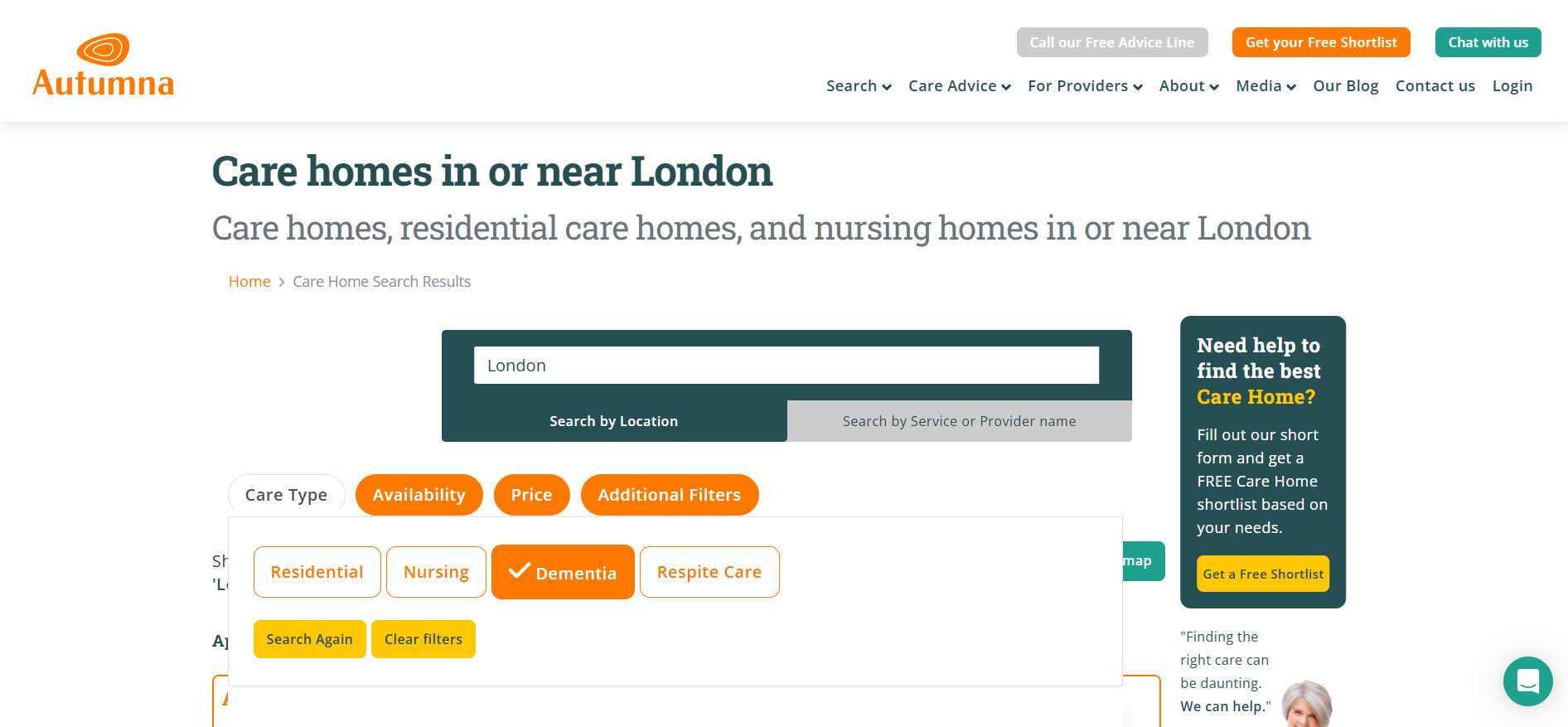Posted by Janine Griffiths
Biggest challenges of moving into a care home with dementia

Moving into a care home with dementia can be a deeply challenging experience, both for the individual and their loved ones.
Dementia affects memory, cognition, and the ability to adapt to change, making the transition to a new environment particularly overwhelming. From adjusting to unfamiliar surroundings to coping with emotional and psychological changes, the process can feel daunting.
If you or someone you know is currently struggling to find a care home that caters to those with dementia, you’re in the right place.
This blog explores the biggest challenges faced during this transition and how you can support your loved ones through it.
Biggest challenges of moving into a care home with dementia
Below is a list of the main challenges that those with dementia face when searching for new care homes.
Adjusting to a new environment
For someone living with dementia, moving into a care home can be disorienting. Unfamiliar surroundings may cause confusion and anxiety, as the person struggles to recognise their new environment. Even small changes, such as the layout of the room or the appearance of staff, can feel overwhelming and lead to increased agitation or distress.
Loss of routine and familiarity
People with dementia often rely heavily on routines and familiar settings to feel secure. Moving to a care home disrupts established patterns, such as meal times, daily activities, or familiar faces. This loss of consistency can make it difficult to adjust, causing feelings of insecurity and discomfort.
Emotional and psychological impact
The emotional toll of moving into a care home with dementia can be significant. Many individuals feel a sense of fear, frustration, or sadness as they leave behind their home and memories. The loss of independence can also lead to feelings of helplessness, while the uncertainty of the new environment may heighten anxiety or depression.
Communication barriers
Moving into a care home often introduces new caregivers and routines, which can be challenging for individuals with dementia to navigate. Communication difficulties—whether due to memory loss, difficulty finding words, or an inability to express needs—can lead to frustration for both the resident and the staff. Misunderstandings may arise, further complicating the adjustment process and creating unnecessary stress.
Social integration
Building relationships in a new care home can be especially challenging for someone with dementia. Struggling to remember names or faces may hinder connections with other residents and staff. This can result in feelings of isolation or loneliness, particularly in the early stages of the transition. Without meaningful social interaction, adapting to life in a care home becomes even more difficult.
How to overcome these challenges
Overcoming the challenges of moving into a care home with dementia requires thoughtful preparation and ongoing support. One of the most effective ways to ease the transition is to encourage your loved ones to bring familiar items from home, such as photographs, cherished keepsakes, or a favourite blanket. These personal touches can create a sense of familiarity and comfort in the new environment. Additionally, maintaining routines as much as possible is essential. Collaborating with the care home staff to preserve habits—such as consistent meal times or preferred activities—can help the individual feel more secure and settled.
Emotional wellbeing is another critical factor. Open communication between family members and care home staff can make a significant difference. Sharing detailed information about your loved one’s preferences, routines, and history helps caregivers provide personalised care, which can reduce feelings of disorientation and anxiety. If possible, introducing the individual to the care home gradually—such as through short visits before the move—can also help them adjust more comfortably to their new surroundings.
Social connections also play an important role in making the transition smoother. Encouraging participation in group activities or programs offered by the care home can create a sense of belonging and provide opportunities for interaction. Building one-on-one relationships with staff or other residents can also help the individual feel supported and less isolated. By combining familiarity, routine, emotional reassurance, and social engagement, families and caregivers can work together to create a positive and supportive environment for their loved one.
Supporting your loved one through the transition
Moving into a care home with dementia is undeniably challenging, but with the right support and strategies, it can become a smoother and more positive experience. Understanding the difficulties—such as adjusting to a new environment, coping with emotional changes, and overcoming communication barriers—helps families and caregivers take proactive steps to ease the transition. By focusing on familiarity, maintaining routines, strengthening social connections, and providing emotional reassurance, it’s possible to create a supportive environment where individuals with dementia can feel safe and valued. While the journey may be difficult, patience, empathy, and collaboration can make all the difference in helping a loved one thrive in their new environment.
Looking for a dementia care home?
If you’re looking for a dementia care home, Autumna can help. Our directory makes it easy to shortlist suitable care homes within minutes. On our homepage, all you need to do is select the type of care you need and enter your location.

You can then select ‘Dementia’ under ‘Care Type’ and click ‘Search Again.’ This will bring up a list of dementia care homes in your selected area.

Our platform allows you to filter the results down further by the type of dementia that a home caters to.
Under ‘Additional filters,’ you can select ‘Dementia category,’ ‘Dementia behaviour,’ and ‘Dementia specialisms’ to easily find care homes specialising in your loved one’s type of dementia.

You will then be able to view a list of care homes in the area that caters to the type of dementia your loved one has.
Alternatively, you can use our shortlisting tool and answer a few quick questions to receive a more personalised list of suggestions. Our friendly and knowledgeable team of advisors are also on hand to help at 01892 335 330.
Receive a Free Care Home Shortlist!
Let our expert team of advisers get your search off to a great start.
Tell us a little about your needs and we'll send you a bespoke shortlist of care homes! Click the button below to begin, it takes just a few minutes.
Other articles to read
From the blog

Older Persons Care Advice
Ultimate guide to care homes in Norwich
April 23rd, 2025
Discover the best care homes in Norwich—explore lifestyle-focused options, top-rated services, and how to choose the right home with confidence.

Older Persons Care Advice
How to find an adult day care centre near you
April 22nd, 2025
Looking for an adult day care centre near you? Discover how to find safe, joyful care for your loved one—and support for yourself—on Autumna.

Older Persons Care Advice
How to shortlist care homes in Exeter
April 17th, 2025
Need help shortlisting care homes in Exeter? Learn how to filter options with confidence, compare homes, and find the best fit with Autumna’s free tools.
Frequently Asked Questions
The challenges include adjusting to a new environment, loss of routine, emotional distress, communication barriers, and difficulty forming social connections.
Bring familiar items, maintain routines, communicate preferences with staff, and encourage participation in social activities to ease the transition.
Autumna’s directory allows you to filter care homes by dementia type, behaviour, and specialisms, helping you find the best match for your loved one.
The UK's largest & most detailed directory of elderly care and retirement living options
10,445
Care Homes
12,390
Home Care Services
1,671
Live-in Care Services
1,826
Retirement Living Developments
Autumna is the UK's largest and most comprehensive later-life living & elderly care directory. Our detailed search facility and team of expert advisors can help you find the best care homes, nursing homes, retirement homes, retirement villages, home care, and live-in care services for you or your loved one's needs. Our website is free to use, we are proudly independent, and we never take referral fees.






